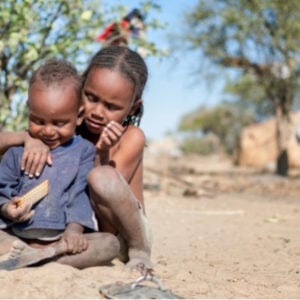Seven months after the Trump-Vance administration froze U.S. global aid, African countries severely affected by the cuts to health programs have begun implementing alternative strategies to address the funding crisis. While governments act urgently to fill the gaps, queer rights groups in Kenya and Uganda have raised concerns about being excluded from these interventions, stressing that sidelining key populations undermines the fight to end HIV/AIDS.
In Uganda, community-led organizations such as LGBTQ networks have played a central role in designing and delivering public health programs, including setting up referral systems, peer support groups, and mobile clinics in underserved areas. UNAIDS has warned that a permanent halt in U.S. funding could lead to a major global HIV response crisis, potentially reversing decades of progress that have saved nearly 27 million lives. The dismantling of USAID—a major funder of HIV efforts in low- and middle-income countries—has already disrupted prevention and treatment programs, affecting the health of millions.
UNAIDS highlights that about half of the 9.2 million people who needed HIV treatment in 2024 and did not receive it lived in sub-Saharan Africa, including Kenya and Uganda. Men who have sex with men and other marginalized groups remain the most affected due to discriminatory laws, stigma, and limited access to care. Clinics, mental health services, and safe spaces run by LGBTQ organizations have been especially hard hit, with groups like GALCK+ in Kenya reporting widespread service disruptions.
In response, some organizations have sought new international partnerships. Kaleidoscope Trust, based in the UK, has provided support to affected LGBTQ groups in the region. Meanwhile, access to new treatments like the injectable PrEP drug lenacapavir is being rolled out in Kenya and Uganda, but anti-LGBTQ discrimination continues to limit uptake among those most at risk.
National governments have begun to adjust budgets to address the crisis. Kenya, which received $322 million from PEPFAR in 2024, increased its national health budget by $85 million to $1.07 billion. This increase followed a high-level meeting in March where stakeholders agreed on a sustainable HIV response strategy. The plan includes integrating HIV services into broader health programs and boosting domestic funding for HIV-related products and vaccines.
Uganda held a similar national dialogue in May to explore domestic solutions, given its health sector spending remains below the WHO’s recommended minimum. Both Kenya and Uganda are now working to strengthen their public health systems, though civil society continues to emphasize that inclusive, community-led approaches are essential for lasting impact.






